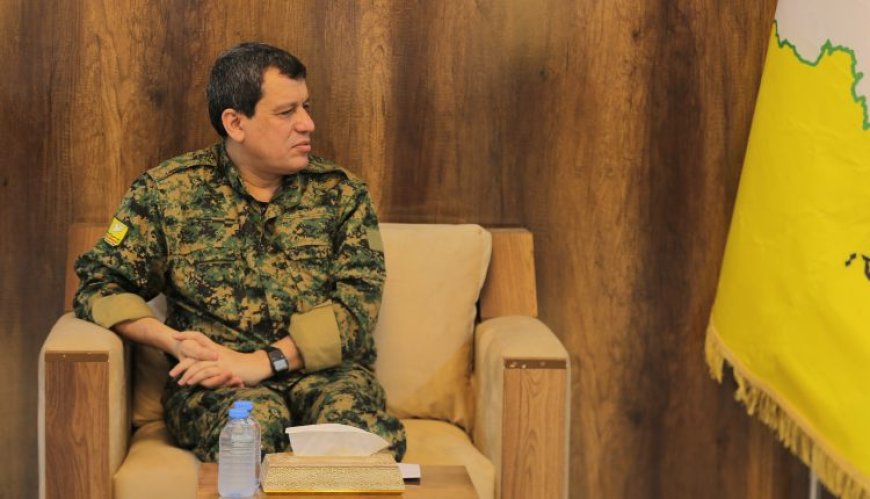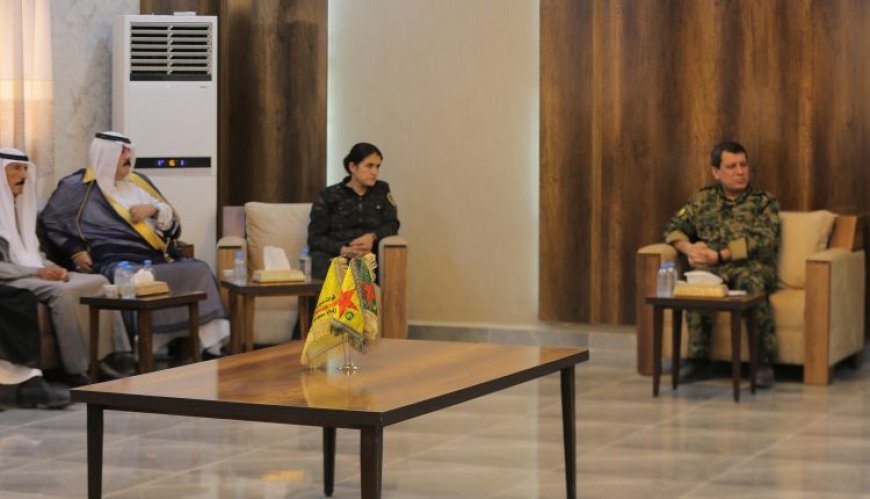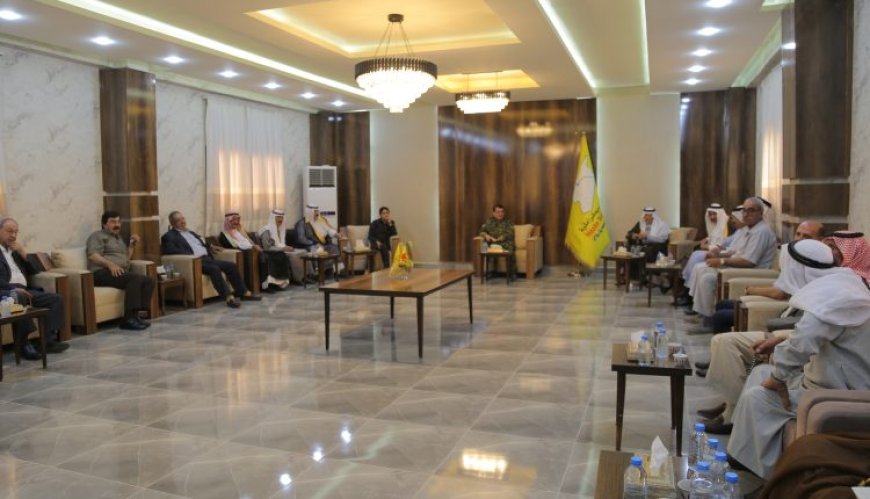Follow-up meeting on Second Syrian Tribal and Component National Unity Forum
Kurdish and Arab tribal leaders, along with representatives from the Syrian Democratic Forces (SDF), discussed the mechanisms and follow-up for implementing the outcomes of the Second Syrian Tribal and Component National Unity Forum during a recent meeting.
A number of Kurdish and Arab tribal leaders, along with representatives from the components of the NE Syria region, met with the General Command of the Syrian Democratic Forces, according to a report by the SDF media center on their official website. The meeting was held to discuss the outcomes of the Syrian Tribal Forum.
According to the SDF media center's official website, the meeting included General Commander of the SDF, Mazlum Abdi, and Rohlat Afrin, a member of the SDF Women’s Protection Units (YPJ), along with representatives from various components and tribes in the NE Syria region.
The discussions focused on "general amnesty for prisoners under Law No. (10), which was ratified by the Autonomous Administration, as well as the relocation of families from NE Syria from Al-Hol Camp, and how to follow up on the implementation of the recent tribal forum’s outcomes."
The "Second Syrian Tribal and Component National Unity Forum," held on May 25th, organized by the Democratic Autonomous Administration, the Syrian Democratic Council, and the SDF in Hasaka, NE Syria, saw participation from over 5,000 individuals from various tribal, religious, and political backgrounds. The forum's outcomes included:
1. Extending our hand for peace and keeping our minds open for dialogue, aiming to build good neighborly relations with the region’s people and countries.
2. The blood of Syrians is forbidden for Syrians; we seek dialogue, security, and construction.
3. Rejecting and fighting terrorism, and opposing discrimination based on ethnicity, religion, and gender.
4. Belief in democratic values, human rights, and citizen freedom.
5. Syria is a unified, decentralized state that accommodates all Syrians, regardless of their components, spectrums, and backgrounds.
6. Working on issuing an amnesty for those not involved in shedding Syrian blood, and for those who have proven their rehabilitation to reintegrate into their communities.
7. Developing and providing daily life services according to available resources and required needs.
8. Focusing on the agricultural sector, livestock, and other important sectors.
9. Re-evaluating the issue of internal displacement, whether in camps or host communities, for those wishing to voluntarily return to their original homes.
10. Combating drugs by all possible means due to the dangers they pose to the future of the Syrian people.
ANHA



















